LamboMan
Civilian
- Joined
- May 13, 2014
- Messages
- 885
- Reaction score
- 0
- Points
- 11
I really wanted to create this thread so we could all share the themes we saw in this film or read about somewhere else and compile them in one place.
There's something I really want to say first: I strongly feel the reaction to BvS by many people (not all) was like the reflex reaction we have to fire, or a flame. When, as little children, our hand touches the flame, we react instinctively without thinking and we feel the pain and end up hating it. We learn that fire is bad and that we must stay away from it.
As we grow, we learn that the Sun is made completely out of fire and if fire didn't exist, life also couldn't exist; atleast life as it is on Earth. So we begin to see things in a new light (pun intended) and realise that there is much more to fire than we thought. In fact, everything in life is better because of it - food, heating, mobility, machinery, electricity. It is the basis of our existence like air or water.
The above analogy is similar to how prehistoric cavemen would have initially been scared of fire and run away at the sight of it but later on they learned that you can cook food on it and that it is useful to keep you warm on cold nights and so on.
This is what I feel BvS is; it's the fire that we reacted reflexively to but on closer and prolonged inspection, we realise that we cannot live without it and that it is extremely beneficial to us when utilized in the right manner. Of course, the fire that goes out of control is harmful, so too much of it is also bad for us. But in the controlled amounts that we are getting it from the movie industry, it is definitely good for us in the long run.
This movie has some really strong themes and depth which can be truly appreciated only if one takes the time to ponder them. These things can open up new lines of thought in our minds and teach us a lot of new and interesting things that we didn't know before or would have thought of before. It incites and encourages discussion and that is what I love about films like these.
DISCLAIMER: No, I am not comparing or equating people who didn't like this film to children or cavemen. I also reacted reflexively to this film on some of it's points but have found the following themes since I pondered it after the initial reaction went away. The analogies are only intended to draw parallels between our reaction to this film and how we react to fire before we know what it is.
--------------------------------------------------------------------------------------------------------------------------------
Alright, now I'm going to list out the themes that I saw in this movie or read about somewhere:
1. Superman is a symbol for unilateral action, Batman is a symbol for the oppressed and powerless victims....just like the United States of America today and the nations it attacks/intervenes in. This was a dialogue on America's foreign policy and role in the world and how the world sees America, whose people think they are doing the right thing by intervening where they are not wanted. It wasn't painting Superman as a villain, just drawing parallels that even the best of intentions can have negative consequences and questions the need for a worldwide power/self-proclaimed international police.
The movie also touches upon the controversial nature of war profiteering and the level of corruption in the military industrial complex, where corporations have privatised soldiers (like the US has sent to Afghanistan in the past) and are selling arms to terrorists and war lords on both sides of the battlefield to fuel conflicts and maximise profits.
Thanks to 'Paradox1' from the SHH forums:
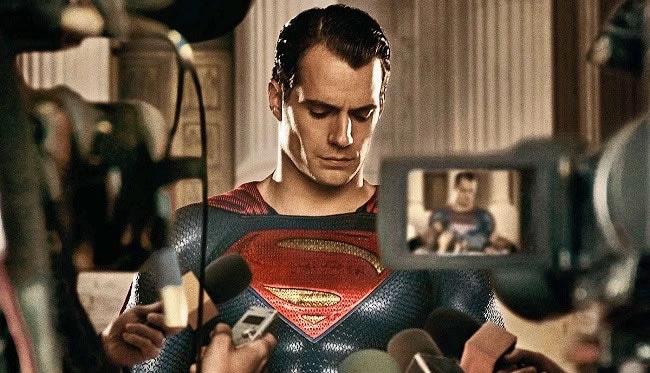
2. The balance of the anima and animus in the human mind or the Jungian archetypes of 'masculine and feminine' in the characters of this film. The 'Martha' moment is also the convergence and resolution of this theme. Read about it in detail here > About Martha. The 'masculine' vs the 'feminine' in BVS [SPOILERS]
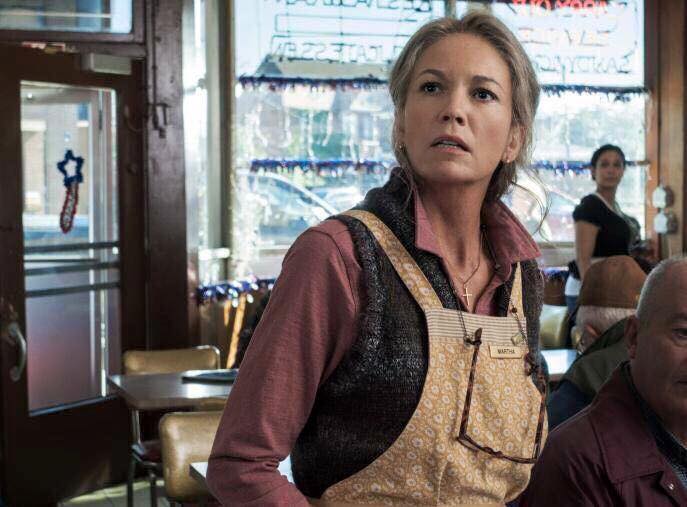
3. The Nietzschean concept of "God is dead and we have killed him", which is what Luthor represents. The concept is not talking about humanity killing god by sinning, it is talking about how scientific thought and progress in our understanding of the world and reality and the origin of such concepts makes the need for such a concept moot. One of the most basic supports for the non-existence of god and the existence of atheism is presented in the movie, "If god is all powerful, he cannot be all good and if he is all good, he cannot be all powerful." Therein lies the paradox and that's why Lex wants to show the world that views Superman as a God, that he is just a man and that god doesn't exist.
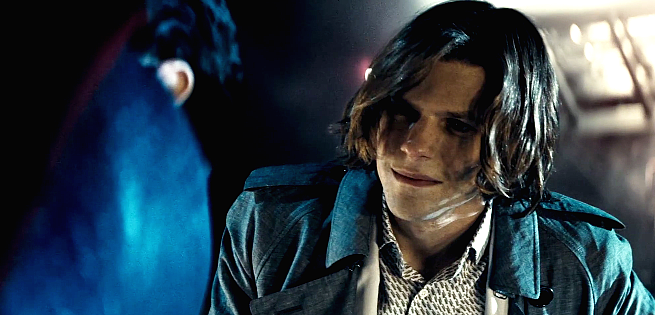
4. The entire movie is a commentary on our current times - cynical, oppressive and war torn BUT it shows that the world can change and for the better. It is art, and does what art is supposed to do according to Ernst Fischer in this quote, "In a decaying society, art, if it is truthful, must also reflect decay. And unless it wants to break faith with its social function, art must show the world as changeable. And help to change it."
Wonder Woman leaves man's world since we created one where it is impossible for all of humanity to stand together. Superman stands for the fundamental good in all living beings, while Batman manifests the fundamental bad that comes out when it is forced to and in desperate times. Superman stands for the ideal of hope for a better world and proves that it is possible for everyone to tap into their potential for good by sacrificing his own life for the planet.
He shows the world and Batman and Wonder Woman that "Men are still good, we fight, we kill, but we can rebuild, we HAVE TO, WE WILL". It is such a positive message, one seen when the public gathers at the park and on the ground is written, "If you seek his monument, look around you" which implies that Superman has inspired enough people to start being a living example of what it means to be good by doing good actions and following his own example of always doing the right thing in the face of all odds and even in the midst of world where people always want to hurt and kill each other and doubt each other. We CAN join forces and fix this world, if we want to.
Thanks to 'springsteen86' of the DCEU Films forums >
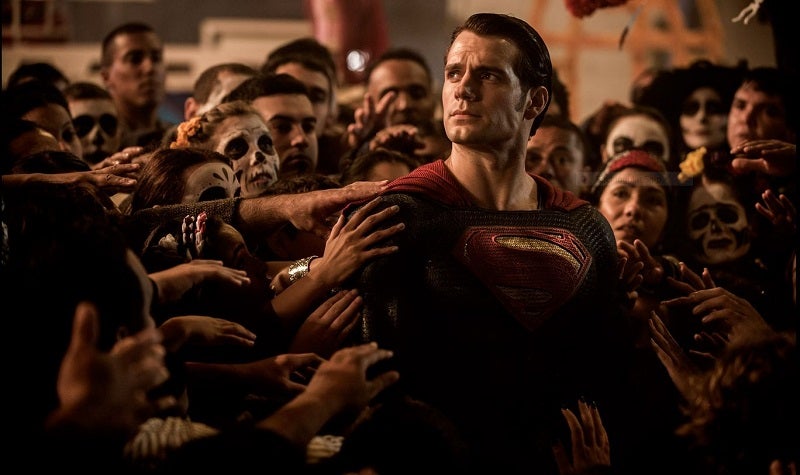
5. This movie's story structure is based on the 'Greek revenge tragedy' which you can read about here > pulpklatura.tumblr.com/post/141843209469/batman-v-superman-the-modern-revenge-tragedy
It is not a typical superhero movie.

6. This movie explores what it means to be a hero, from three different points of view:
a. It is about an outcast, an alien, overcoming all the hate in the world, moving past his failures and choosing to always do the right thing in the face of all adversity and then give his life for his adopted people and home, inspiring them to become beacons of good themselves. He is a god faced with his mortality and real physical pain for the first time in his life, and that is when he learns what it means to be brave and to be a hero when he chooses to put himself in harm's way to protect the world even though he knows he will die.
b. It's about a man who has lost everything, his family, his friends, his people and for whom protecting the world from an alien threat is the only thing left in his life, but who realises that he himself has become the very thing he swore to protect others from, the killer, the aggressor, the murder of a family who took the mother away from her son or vice-versa. It's about that man coming back from the edge and realising why he started fighting the good fight in the first place, and becoming the hero he used to be.
c. It's about a demigoddess who had lost faith in humanity and left us to defend ourselves from each other, but who is now inspired by another hero's sacrifice for humanity, enough to return to man's world and begin fighting for what is right again, with a renewed sense of hope and faith in humanity and its potential for good.
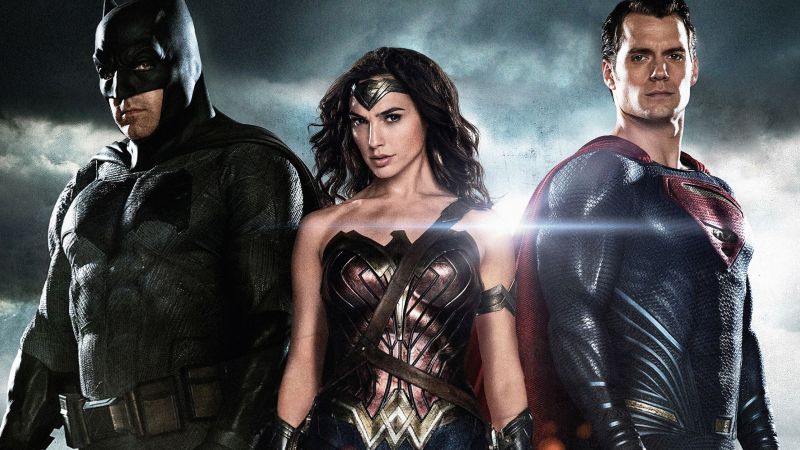
7. This movie is also a deconstruction of the modern myth, the modern epic, i.e., what all superheroes are and what iconic names like Batman and Superman definitely are. In religious scripts of almost all religions, there are hero characters who have superpowers and have performed great feats of strength and/or supernatural ability, which are the older counterparts to the modern myths the movie is talking about. It means to show what would happen if such things and people ACTUALLY existed in the world as of today, the reaction people would have and the impact it would have on our world as a whole.
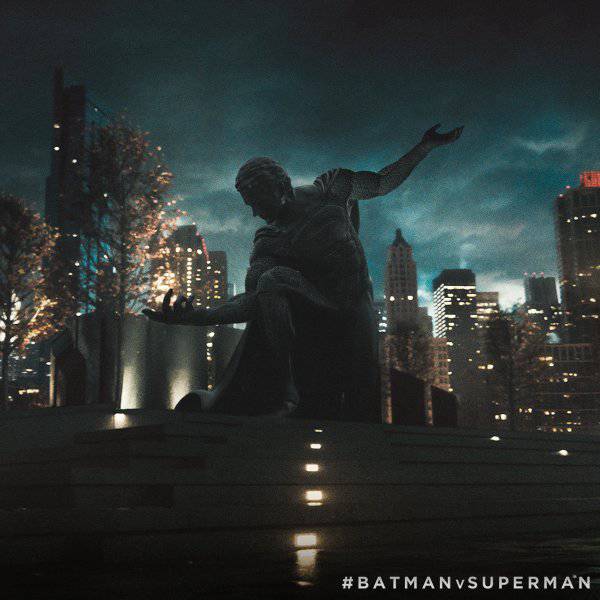
8. It also draws parallels between Jesus and Superman, not to say that Superman is space jesus, but to show us that if a god like alien came to our world we would treat him like a miraculous messiah/savior figure OR as a devil in disguise instead of looking at him as another living being who just happened to have superpowers and who is just a guy who wants to do the right thing. It is to show us that we are wrong to think that the potential for world changing good only exists in powerful god like beings, and that we all have the potential to rise to that level of good if only we choose to.
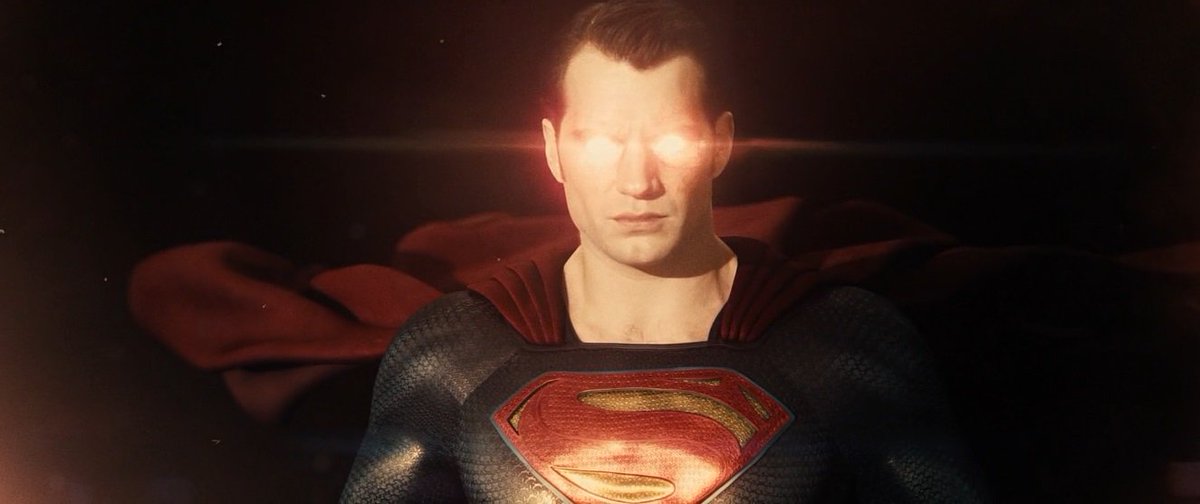
9. The bombing scene was to show how corporate power has destroyed democracy both in function and form and that it is just a face, a puppet to dance to the tune of those in power and about how the media escalates stories without having any facts and paints victims as the perpetrators.
The former theme is also foreshadowed in the scene where Lex very easily manipulates the other senator into giving him access to the Scout Ship and Zod's body, showing us that democracy can be bought off by those in power.

10. Finally, this film is about how the world isn't just black and white and morality cannot be seen in those terms. Things are always in between those two extremes and are gray in the real world. A hero doesn't need to be 'absolute good' or 'absolutely perfect' for them to be a real hero, they just need to do the right thing when the right time/their time of reckoning comes.

11. Superman is also used to depict the stance of people on immigrants/people of different backgrounds and religions. This has been explained well by Harish Chengaiah of 'thegekdom.com' in this article:
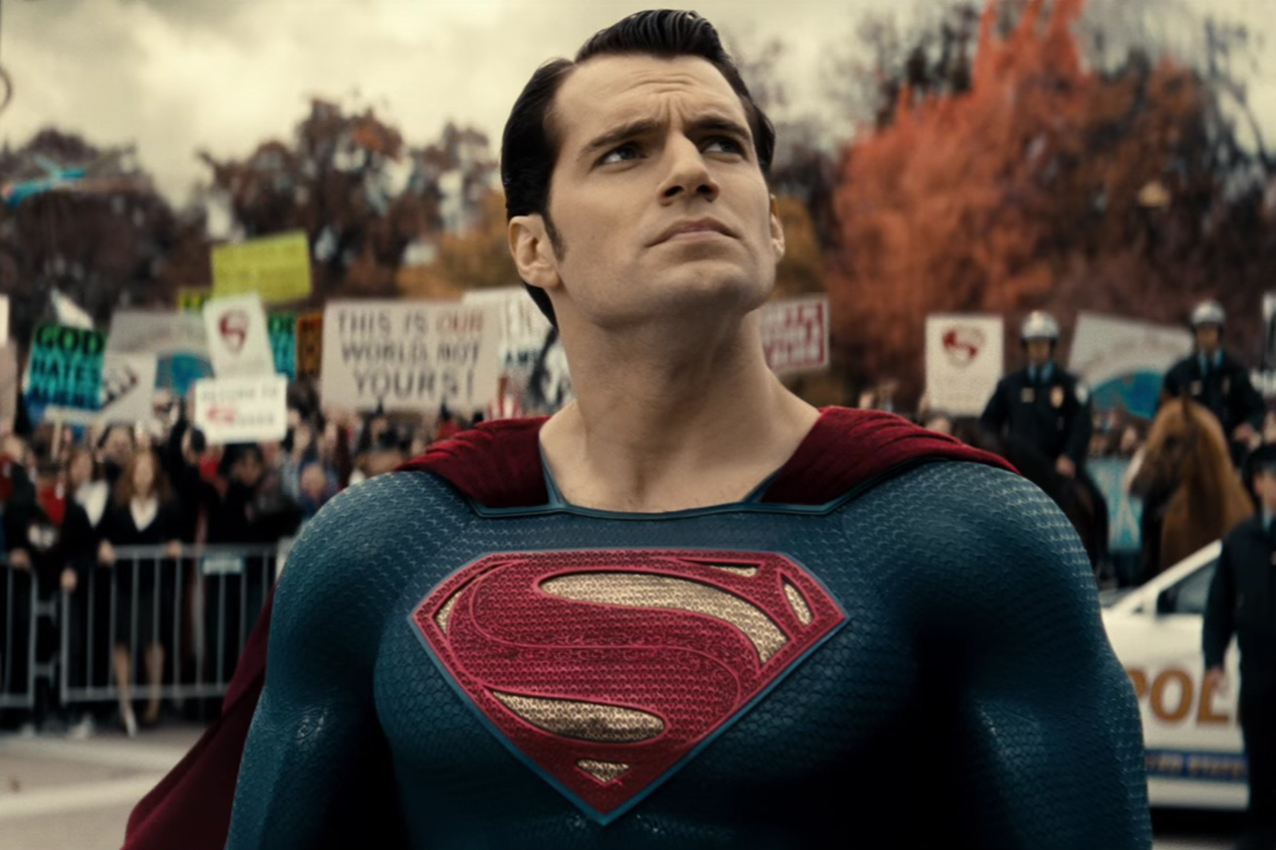
--------------------------------------------------------------------------------------------------------------------------------
So what do you think of these? What other themes did you see in Batman v Superman? Sound off!
There's something I really want to say first: I strongly feel the reaction to BvS by many people (not all) was like the reflex reaction we have to fire, or a flame. When, as little children, our hand touches the flame, we react instinctively without thinking and we feel the pain and end up hating it. We learn that fire is bad and that we must stay away from it.
As we grow, we learn that the Sun is made completely out of fire and if fire didn't exist, life also couldn't exist; atleast life as it is on Earth. So we begin to see things in a new light (pun intended) and realise that there is much more to fire than we thought. In fact, everything in life is better because of it - food, heating, mobility, machinery, electricity. It is the basis of our existence like air or water.
The above analogy is similar to how prehistoric cavemen would have initially been scared of fire and run away at the sight of it but later on they learned that you can cook food on it and that it is useful to keep you warm on cold nights and so on.
This is what I feel BvS is; it's the fire that we reacted reflexively to but on closer and prolonged inspection, we realise that we cannot live without it and that it is extremely beneficial to us when utilized in the right manner. Of course, the fire that goes out of control is harmful, so too much of it is also bad for us. But in the controlled amounts that we are getting it from the movie industry, it is definitely good for us in the long run.
This movie has some really strong themes and depth which can be truly appreciated only if one takes the time to ponder them. These things can open up new lines of thought in our minds and teach us a lot of new and interesting things that we didn't know before or would have thought of before. It incites and encourages discussion and that is what I love about films like these.
DISCLAIMER: No, I am not comparing or equating people who didn't like this film to children or cavemen. I also reacted reflexively to this film on some of it's points but have found the following themes since I pondered it after the initial reaction went away. The analogies are only intended to draw parallels between our reaction to this film and how we react to fire before we know what it is.
--------------------------------------------------------------------------------------------------------------------------------
Alright, now I'm going to list out the themes that I saw in this movie or read about somewhere:
1. Superman is a symbol for unilateral action, Batman is a symbol for the oppressed and powerless victims....just like the United States of America today and the nations it attacks/intervenes in. This was a dialogue on America's foreign policy and role in the world and how the world sees America, whose people think they are doing the right thing by intervening where they are not wanted. It wasn't painting Superman as a villain, just drawing parallels that even the best of intentions can have negative consequences and questions the need for a worldwide power/self-proclaimed international police.
The movie also touches upon the controversial nature of war profiteering and the level of corruption in the military industrial complex, where corporations have privatised soldiers (like the US has sent to Afghanistan in the past) and are selling arms to terrorists and war lords on both sides of the battlefield to fuel conflicts and maximise profits.
Thanks to 'Paradox1' from the SHH forums:
Batman also represents America but post 9/11 a nation which has become cynical, fearful of foreigners and tramples over the civil liberties of citizens in the name of security. An example of that is when Perry White representing the American people says, "no one cares about Clark Kent taking on the Batman " instead ordering him to write more puff pieces. A clear dig on Americas view on civil liberties over security and obsession with celebrity.

2. The balance of the anima and animus in the human mind or the Jungian archetypes of 'masculine and feminine' in the characters of this film. The 'Martha' moment is also the convergence and resolution of this theme. Read about it in detail here > About Martha. The 'masculine' vs the 'feminine' in BVS [SPOILERS]

3. The Nietzschean concept of "God is dead and we have killed him", which is what Luthor represents. The concept is not talking about humanity killing god by sinning, it is talking about how scientific thought and progress in our understanding of the world and reality and the origin of such concepts makes the need for such a concept moot. One of the most basic supports for the non-existence of god and the existence of atheism is presented in the movie, "If god is all powerful, he cannot be all good and if he is all good, he cannot be all powerful." Therein lies the paradox and that's why Lex wants to show the world that views Superman as a God, that he is just a man and that god doesn't exist.

4. The entire movie is a commentary on our current times - cynical, oppressive and war torn BUT it shows that the world can change and for the better. It is art, and does what art is supposed to do according to Ernst Fischer in this quote, "In a decaying society, art, if it is truthful, must also reflect decay. And unless it wants to break faith with its social function, art must show the world as changeable. And help to change it."
Wonder Woman leaves man's world since we created one where it is impossible for all of humanity to stand together. Superman stands for the fundamental good in all living beings, while Batman manifests the fundamental bad that comes out when it is forced to and in desperate times. Superman stands for the ideal of hope for a better world and proves that it is possible for everyone to tap into their potential for good by sacrificing his own life for the planet.
He shows the world and Batman and Wonder Woman that "Men are still good, we fight, we kill, but we can rebuild, we HAVE TO, WE WILL". It is such a positive message, one seen when the public gathers at the park and on the ground is written, "If you seek his monument, look around you" which implies that Superman has inspired enough people to start being a living example of what it means to be good by doing good actions and following his own example of always doing the right thing in the face of all odds and even in the midst of world where people always want to hurt and kill each other and doubt each other. We CAN join forces and fix this world, if we want to.
Thanks to 'springsteen86' of the DCEU Films forums >
The plot with the debates on Superman and Batman, showing the divide in public opinion is meant to mirror the world we live in today, and also meant to mirror the split in ideaology between Batman and Superman. Great art is supposed to hold a mirror up to the world we live in, and our world is completely split and divided on every single major issue. For example, a Republican and a Democrat are probably both good people, and want the same thing, a secure and just world. But they have completely different ideas on how to go about it, which stirs up debate, which stirs up resentment and can even lead to violence.
Especially now in our social media world, everywhere you look you see people debating every single issue, getting angry, getting further entrenched in their views, and progress not being made as a result. I think a major theme of BvS is that we're all part of this world and want a similar world to live in, but true change comes from compromise and working together instead of being at each other's throats. A very important and relevant theme.

5. This movie's story structure is based on the 'Greek revenge tragedy' which you can read about here > pulpklatura.tumblr.com/post/141843209469/batman-v-superman-the-modern-revenge-tragedy
It is not a typical superhero movie.

6. This movie explores what it means to be a hero, from three different points of view:
a. It is about an outcast, an alien, overcoming all the hate in the world, moving past his failures and choosing to always do the right thing in the face of all adversity and then give his life for his adopted people and home, inspiring them to become beacons of good themselves. He is a god faced with his mortality and real physical pain for the first time in his life, and that is when he learns what it means to be brave and to be a hero when he chooses to put himself in harm's way to protect the world even though he knows he will die.
b. It's about a man who has lost everything, his family, his friends, his people and for whom protecting the world from an alien threat is the only thing left in his life, but who realises that he himself has become the very thing he swore to protect others from, the killer, the aggressor, the murder of a family who took the mother away from her son or vice-versa. It's about that man coming back from the edge and realising why he started fighting the good fight in the first place, and becoming the hero he used to be.
c. It's about a demigoddess who had lost faith in humanity and left us to defend ourselves from each other, but who is now inspired by another hero's sacrifice for humanity, enough to return to man's world and begin fighting for what is right again, with a renewed sense of hope and faith in humanity and its potential for good.

7. This movie is also a deconstruction of the modern myth, the modern epic, i.e., what all superheroes are and what iconic names like Batman and Superman definitely are. In religious scripts of almost all religions, there are hero characters who have superpowers and have performed great feats of strength and/or supernatural ability, which are the older counterparts to the modern myths the movie is talking about. It means to show what would happen if such things and people ACTUALLY existed in the world as of today, the reaction people would have and the impact it would have on our world as a whole.

8. It also draws parallels between Jesus and Superman, not to say that Superman is space jesus, but to show us that if a god like alien came to our world we would treat him like a miraculous messiah/savior figure OR as a devil in disguise instead of looking at him as another living being who just happened to have superpowers and who is just a guy who wants to do the right thing. It is to show us that we are wrong to think that the potential for world changing good only exists in powerful god like beings, and that we all have the potential to rise to that level of good if only we choose to.

The former theme is also foreshadowed in the scene where Lex very easily manipulates the other senator into giving him access to the Scout Ship and Zod's body, showing us that democracy can be bought off by those in power.

10. Finally, this film is about how the world isn't just black and white and morality cannot be seen in those terms. Things are always in between those two extremes and are gray in the real world. A hero doesn't need to be 'absolute good' or 'absolutely perfect' for them to be a real hero, they just need to do the right thing when the right time/their time of reckoning comes.

11. Superman is also used to depict the stance of people on immigrants/people of different backgrounds and religions. This has been explained well by Harish Chengaiah of 'thegekdom.com' in this article:
After the Senate bombing there were rioters who were burning Superman effigies. This behaviour reflects the xenophobic nature of human beings and how we treat outside people based on ill-informed knowledge or bias or simply put We hate what we dont understand.
The treatment of immigrants and people of other religions in real life are extremely similar to how Superman was treated in this movie. This element grounded the movie very well and also acted as a window to our own society. We clearly see that Superman is emotionally traumatized by the anti-Superman sentiments even when he gave his best efforts but the world says "Your best isn't enough" so what does he do? He endures and continually tries to do his best, another parallel between Superman and the troubled minorities/immigrants.

--------------------------------------------------------------------------------------------------------------------------------
So what do you think of these? What other themes did you see in Batman v Superman? Sound off!
Last edited:

 who tried to reason with this person on another board and explain why critical thinking/being open to debate is a good thing, but got so beaten down by his complete lack of understanding of the concept and his insistence on calling the GA/Marvel fans 'idiots who just don't understand the brilliance of Zack Snyder' that I ended up going on a Malcolm Tucker style rant and leaving the board completely, I urge you to just step away, because attempting to engage him in debate =
who tried to reason with this person on another board and explain why critical thinking/being open to debate is a good thing, but got so beaten down by his complete lack of understanding of the concept and his insistence on calling the GA/Marvel fans 'idiots who just don't understand the brilliance of Zack Snyder' that I ended up going on a Malcolm Tucker style rant and leaving the board completely, I urge you to just step away, because attempting to engage him in debate = 




